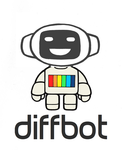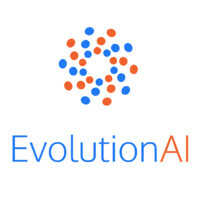Description

RPA Express

Apify
Comprehensive Overview: RPA Express vs Apify
RPA Express (by WorkFusion)
a) Primary Functions and Target Markets:
-
Primary Functions:
- RPA Express is designed for automating repetitive, rule-based tasks, such as data entry, data extraction, form filling, and processing transactions.
- It provides a user-friendly interface for creating bots without the need for extensive programming skills.
- Includes features like recorders to capture user interactions, bot manager for orchestrating and scheduling tasks, and analytics for monitoring performance.
-
Target Markets:
- Primarily targets businesses in sectors like finance, banking, insurance, healthcare, and retail.
- Aimed at medium to large enterprises looking to streamline operations and reduce manual workload.
b) Market Share and User Base:
- Market Share:
- RPA Express is part of the larger RPA market, competing with solutions like UiPath, Blue Prism, and Automation Anywhere. It holds a niche position, benefiting from WorkFusion's broader machine learning and AI capabilities.
- User Base:
- Its user base consists mainly of enterprises with dedicated IT and operations teams. Popular in regions with a strong focus on digital transformation.
c) Key Differentiating Factors:
- Free Version Availability: RPA Express offers a free tier, which helps smaller companies or teams get started with automation without upfront costs.
- Integration with AI: WorkFusion's platform combines RPA with AI to provide smart process automation, marking a step beyond standard rule-based automation.
- Focus on Cognitive Automation: Enhances RPA with capabilities like optical character recognition (OCR) and natural language processing (NLP).
Apify
a) Primary Functions and Target Markets:
-
Primary Functions:
- Apify specializes in web scraping, data extraction, and automation. It provides the tools to collect structured data from websites and transform it into usable formats.
- Offers a platform for creating, running, and managing data extraction and web automation scripts called "Actors."
-
Target Markets:
- Primarily targets developers, data scientists, and businesses requiring large-scale web data for purposes like market research, price monitoring, and SEO analysis.
- Serves industries such as e-commerce, marketing, real estate, and media.
b) Market Share and User Base:
- Market Share:
- Apify operates in the web scraping and data automation market, a niche area with increasing demand due to the growing need for external data integration into business processes.
- User Base:
- Diverse user base, spanning individual developers, medium-sized businesses, and large enterprises. It’s also popular among tech-savvy users who desire custom solutions.
c) Key Differentiating Factors:
- Ease of Use for Developers: Apify is developer-friendly, offering a flexible platform that can be customized and integrated into existing processes.
- Focus on Web Data: Unlike traditional RPA tools focused on desktop automation, Apify specializes in extracting and manipulating internet data.
- Marketplace for Custom Solutions: Provides a marketplace where users can find and share pre-built solutions, simplifying the setup of complex data extraction tasks.
Comparison Summary:
- RPA Express vs. Apify: RPA Express is an all-encompassing RPA tool with a focus on traditional business processes, enhanced by AI integrations. Apify, on the other hand, specializes in web automation and data extraction, catering primarily to developers and data-focused applications.
- Market Position: RPA Express fits into broader enterprise optimization strategies, while Apify is positioned between technical and niche end-user markets needing tailored web data solutions.
Contact Info

Year founded :
Not Available
Not Available
Not Available
Not Available
Not Available

Year founded :
Not Available
Not Available
Not Available
Canada
Not Available
Feature Similarity Breakdown: RPA Express, Apify
When comparing RPA Express (now part of Automation Anywhere's suite) and Apify, it's essential to consider their core offerings as both are aimed at automation but serve slightly different purposes. RPA Express is a robotic process automation tool focusing on automating routine business processes, while Apify specializes in web scraping and data extraction.
a) Core Features in Common
-
Automation Capabilities:
- Both platforms offer automation of repetitive tasks. RPA Express automates general business processes, while Apify automates data collection from the web.
-
Workflow Design and Management:
- RPA Express provides tools for designing and managing workflows, similar to how Apify lets users set up and manage web scraping tasks and data extraction processes.
-
User Management:
- Both tools offer user management features, allowing multiple users to collaborate on projects and manage roles and permissions.
-
Integration:
- Both platforms support integration with various applications and services, facilitating seamless workflows and data transfer.
-
Scheduling:
- Both RPA Express and Apify support workflow/task scheduling to automate processes at specified intervals.
b) User Interface Comparison
-
RPA Express:
- Typically provides a more software-oriented UI, focusing on drag-and-drop functionality for business users. It tends to be more graphical, allowing users to create and manage bots with minimal coding.
- The interface is designed for quick deployment and management of bots with visual workflow editors.
-
Apify:
- Often provides a more web-focused interface, with many of its functionalities accessible via a web dashboard. It might require a bit more technical expertise, especially for setting up complex scrapers.
- It emphasizes script-based configuration, often involving JavaScript, and may require more familiarity with coding, though it provides user-friendly templates.
c) Unique Features
-
RPA Express:
- Desktop Automation: With capabilities to interact with various desktop applications, it allows for automation beyond just web interactions.
- Pre-trained Bots: Offers a set of pre-trained bots for common business processes, making it easier to deploy solutions quickly.
- Extensive OCR Support: Often includes strong OCR (Optical Character Recognition) capabilities for processing documents and extracting text.
-
Apify:
- Web Automation and Scraping: Specifically designed for collecting web data at scale, offering extensive tools and APIs designed for this purpose.
- Actor Ecosystem: Provides a marketplace for APIs and tools (called “Actors”), which can be shared and reused, offering flexibility in automating web-based processes.
- Custom Extraction Patterns: Offers extensive customization for web scraping patterns, often more advanced than traditional RPA tools like RPA Express.
Each tool has its niche, with RPA Express being well-suited for enterprise business process automation and Apify excelling in web scraping and data collection solutions. Users would typically choose between these based on their primary need: broader business process automation versus specialized web data extraction.
Features

Seamless Integration
User-Friendly Interface
Security and Compliance
Support and Updates

Automation
Data Extraction
Data Management
User Support
Best Fit Use Cases: RPA Express, Apify
RPA Express by WorkFusion and Apify cater to distinct use cases and business needs, leveraging robotic process automation and web scraping capabilities, respectively. Here's how they generally fit into different business scenarios:
RPA Express
a) Best Fit for RPA Express:
-
Types of Businesses or Projects:
- Financial Services: Automating repetitive tasks like data entry, transaction processing, compliance checks, and reporting.
- Healthcare: Managing administrative tasks such as patient record management, appointment scheduling, and insurance claims processing.
- Retail and E-commerce: Handling order processing, inventory management, and customer service operations.
- Telecommunications: Automating customer onboarding, service provisioning, and billing processes.
-
Scenarios:
- High Volume, Repetitive Processes: RPA Express excels in automating structured, rule-based tasks at scale, making it ideal for operations that demand high accuracy and efficiency.
- Legacy System Integration: If a business relies heavily on outdated or disparate systems that lack APIs, RPA Express can bridge the gaps by mimicking user actions.
d) Industry Verticals and Company Sizes:
- Industry Verticals: Primarily targets industries with significant back-office operations and compliance requirements, such as finance, healthcare, and retail.
- Company Sizes: Suitable for medium to large enterprises due to the complexity and volume of data they handle, but scalable enough for smaller businesses looking to automate specific processes.
Apify
b) Preferred Scenarios for Apify:
-
Types of Businesses or Projects:
- Market Research Firms: Gathering large datasets from various online sources for analysis and insights.
- Digital Marketing Agencies: Collecting competitor insights, price tracking, and social media monitoring.
- E-commerce Businesses: Product data extraction, price comparisons, and sentiment analysis.
- Travel and Hospitality: Aggregating data from travel booking sites for real-time pricing and availability.
-
Scenarios:
- Data Extraction from the Web: Apify is specifically designed for web scraping, making it optimal for projects requiring automated data collection from websites without structured APIs.
- Dynamic Web Content: When dealing with websites that use dynamic content like JavaScript, Apify's capabilities enable efficient extraction and automation.
d) Industry Verticals and Company Sizes:
- Industry Verticals: Serves industries reliant on data acquisition and information aggregation, such as market research, e-commerce, travel, and media.
- Company Sizes: Versatile enough to accommodate startups, SMBs, and large enterprises, especially those driven by data analytics and digital strategies.
Conclusion:
While RPA Express is best suited for organizations looking to enhance operational efficiency through automation of internal processes, Apify shines in scenarios where external data harvesting and web interactivity are critical. Depending on their specific needs, businesses can leverage these tools to optimize either internal workflow automation or external data-driven strategies.
Pricing

Pricing Not Available

Pricing Not Available
Metrics History
Metrics History
Comparing undefined across companies
Conclusion & Final Verdict: RPA Express vs Apify
Conclusion and Final Verdict for RPA Express vs. Apify
When evaluating RPA Express and Apify, it's important to consider their functionalities, ease of use, pricing, scalability, and customer support. Both tools offer distinct advantages and cater to different user needs.
a) Best Overall Value
RPA Express generally provides the best overall value for businesses that require comprehensive automation capabilities beyond web scraping, such as automating desktop applications and workflows. It is ideal for organizations looking to automate repetitive tasks across various applications.
Apify, on the other hand, offers the best value for users focused primarily on web scraping and web automation. Its cost-effectiveness and scalability make it advantageous for businesses with intensive web data extraction needs.
b) Pros and Cons
RPA Express:
-
Pros:
- Comprehensive automation capabilities including desktop and web applications.
- User-friendly interface with drag-and-drop functionality.
- Strong community support and resources for developers.
- Offers both free and paid versions, catering to businesses of all sizes.
-
Cons:
- It might have a steeper learning curve for non-technical users compared to simpler web scraping tools.
- Limited to rule-based automation, which may not handle complex dynamic scenarios effectively.
- May require additional resources for setup and management.
Apify:
-
Pros:
- Specializes in web scraping and offers strong web automation features.
- Flexible and scalable cloud-based platform.
- Robust API support, which integrates well with other services.
- Extensive library of marketplace "actors" (prebuilt automations) that can be easily customized.
-
Cons:
- Primarily web-focused, limiting its automation capabilities with desktop or complex multi-application workflows.
- Requires basic programming knowledge to fully utilize advanced features.
- Pricing can escalate with high data processing and large-scale scraping operations.
c) Recommendations for Users
-
For Users Needing Comprehensive Automation: If your organization requires automation that spans desktop applications, repetitive manual processes, and a variety of software tools, RPA Express is the more suitable choice. It's recommended for users who need to integrate existing systems and automate beyond web data collection.
-
For Users Focused on Web Automation and Scraping: Choose Apify if your primary goal is to extract data from the web or automate browser-based tasks. It's particularly well-suited for startups or enterprises needing extensive web scraping solutions. Users with technical skills and programming knowledge will benefit the most from Apify’s advanced features.
Ultimately, the choice between RPA Express and Apify should align with your specific automation needs, technical resources, and long-term business goals. Consider a trial or pilot project with both tools if you’re undecided, to observe their performance and fit within your workflows.
Add to compare
Add similar companies




